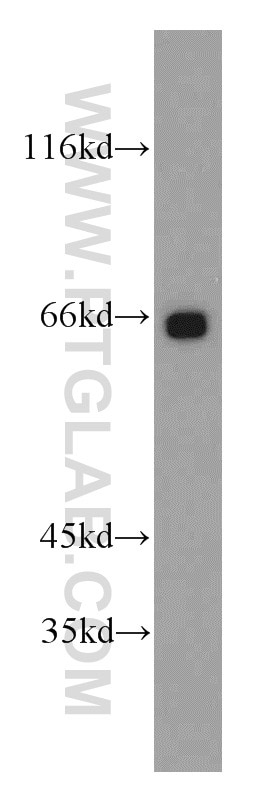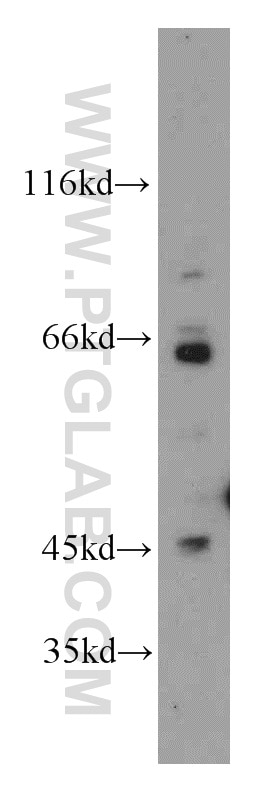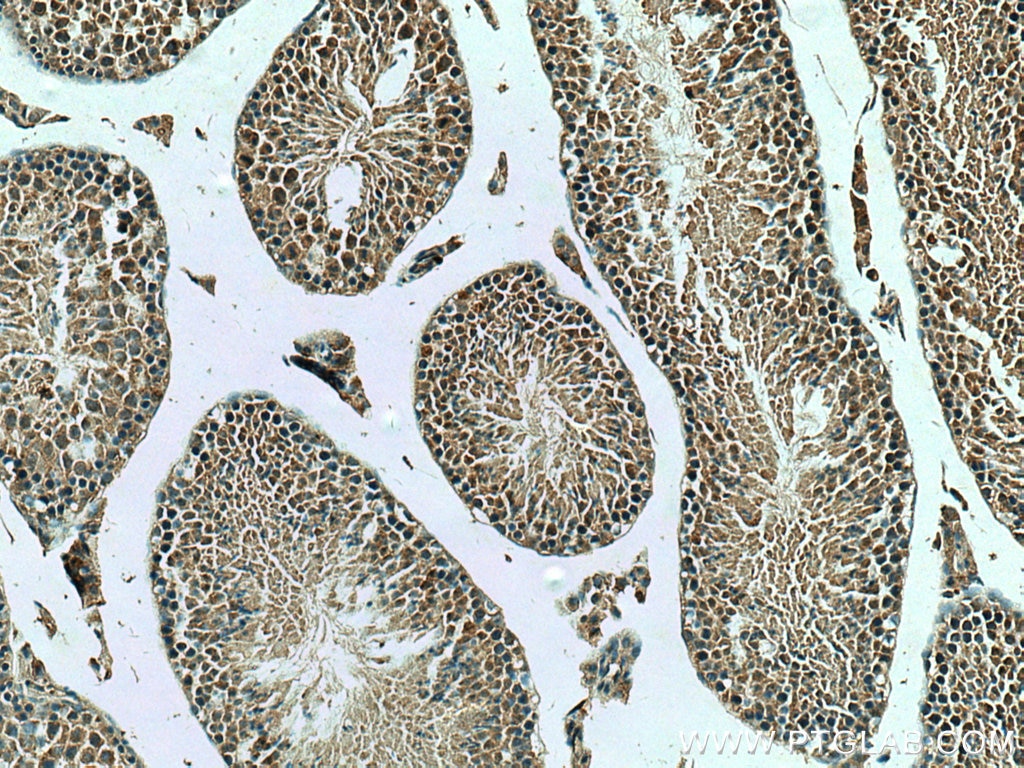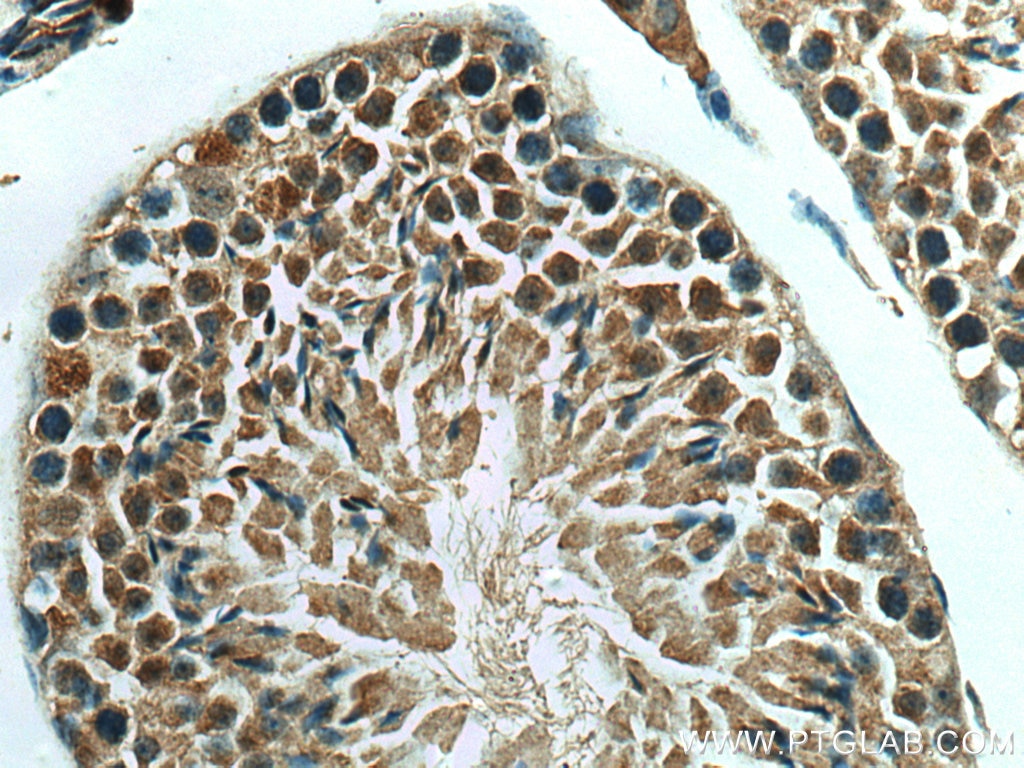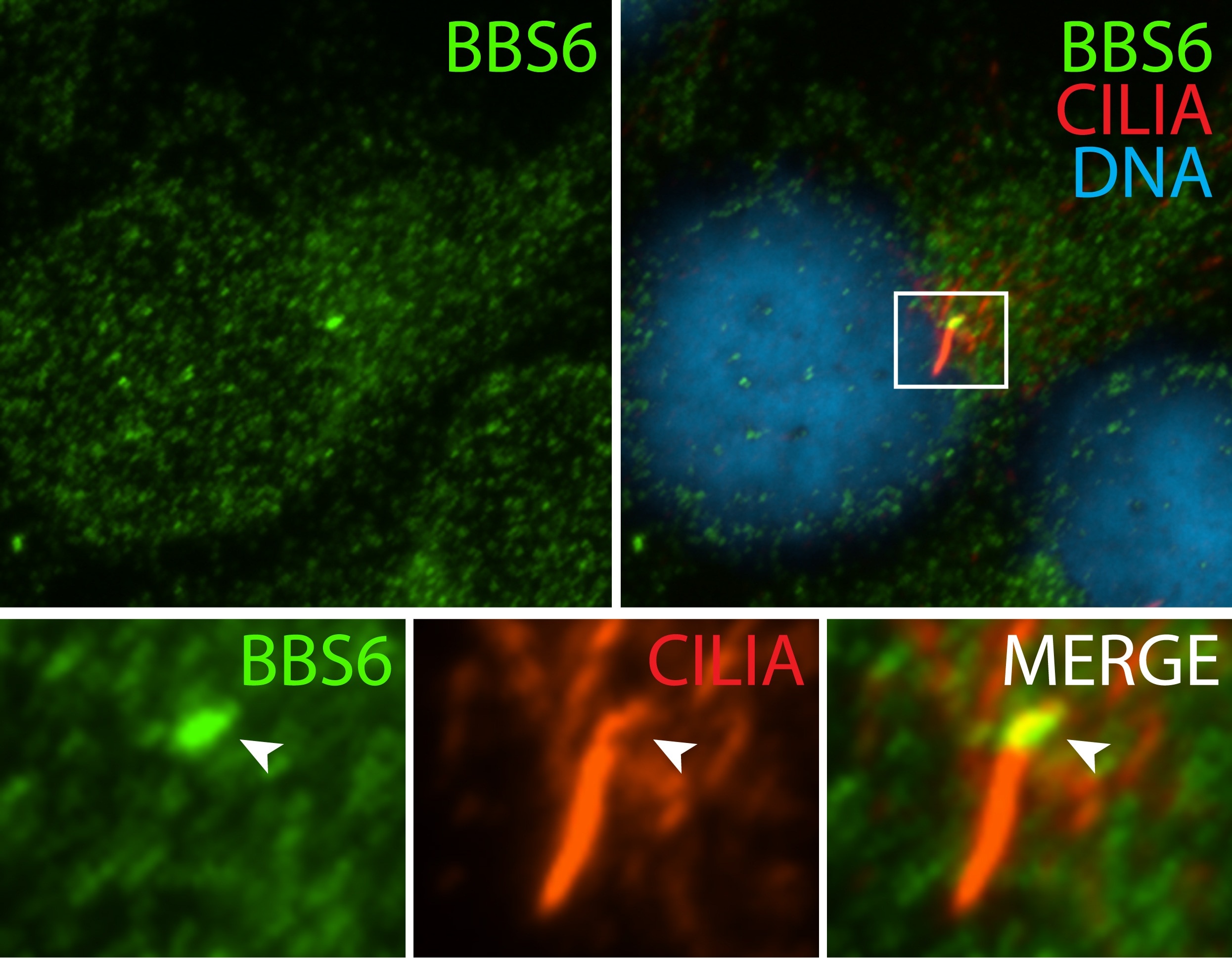Anticorps Polyclonal de lapin anti-BBS6
BBS6 Polyclonal Antibody for WB, IF, IHC, ELISA
Hôte / Isotype
Lapin / IgG
Réactivité testée
Humain, rat, souris
Applications
WB, IHC, IF/ICC, ELISA
Conjugaison
Non conjugué
N° de cat : 13078-1-AP
Synonymes
Galerie de données de validation
Applications testées
| Résultats positifs en WB | tissu testiculaire de souris, tissu cérébral de souris |
| Résultats positifs en IHC | tissu testiculaire de souris, il est suggéré de démasquer l'antigène avec un tampon de TE buffer pH 9.0; (*) À défaut, 'le démasquage de l'antigène peut être 'effectué avec un tampon citrate pH 6,0. |
| Résultats positifs en IF/ICC | cellules hTERT-RPE1 |
Dilution recommandée
| Application | Dilution |
|---|---|
| Western Blot (WB) | WB : 1:200-1:1000 |
| Immunohistochimie (IHC) | IHC : 1:50-1:500 |
| Immunofluorescence (IF)/ICC | IF/ICC : 1:20-1:200 |
| It is recommended that this reagent should be titrated in each testing system to obtain optimal results. | |
| Sample-dependent, check data in validation data gallery | |
Applications publiées
| WB | See 1 publications below |
Informations sur le produit
13078-1-AP cible BBS6 dans les applications de WB, IHC, IF/ICC, ELISA et montre une réactivité avec des échantillons Humain, rat, souris
| Réactivité | Humain, rat, souris |
| Réactivité citée | souris |
| Hôte / Isotype | Lapin / IgG |
| Clonalité | Polyclonal |
| Type | Anticorps |
| Immunogène | BBS6 Protéine recombinante Ag3785 |
| Nom complet | McKusick-Kaufman syndrome |
| Masse moléculaire calculée | 62 kDa |
| Poids moléculaire observé | 63 kDa |
| Numéro d’acquisition GenBank | BC028973 |
| Symbole du gène | MKKS |
| Identification du gène (NCBI) | 8195 |
| Conjugaison | Non conjugué |
| Forme | Liquide |
| Méthode de purification | Purification par affinité contre l'antigène |
| Tampon de stockage | PBS avec azoture de sodium à 0,02 % et glycérol à 50 % pH 7,3 |
| Conditions de stockage | Stocker à -20°C. Stable pendant un an après l'expédition. L'aliquotage n'est pas nécessaire pour le stockage à -20oC Les 20ul contiennent 0,1% de BSA. |
Informations générales
MKKS also known as BBS6 is a probable chaperone given to the amino acid similarity to the chaperonin family of proteins and may play a role in protein processing in limb, cardiac and reproductive system development. The mutations in BBS6 have been linked to Bardet-Biedl syndrome (BBS) which is a genetically heterogeneous, autosomal recessive disorder characterized by usually severe pigmentary retinopathy, early onset obesity, polydactyly, hypogenitalism, renal malformation and mental retardation. It may also get involved in cellular organization processes, in particular relating to ciliary/flagellar and centrosomal activities.
Protocole
| Product Specific Protocols | |
|---|---|
| WB protocol for BBS6 antibody 13078-1-AP | Download protocol |
| IHC protocol for BBS6 antibody 13078-1-AP | Download protocol |
| Standard Protocols | |
|---|---|
| Click here to view our Standard Protocols |
Publications
| Species | Application | Title |
|---|---|---|
Mol Neurobiol Inpp5e Regulated the Cilium-Related Genes Contributing to the Neural Tube Defects Under 5-Fluorouracil Exposure |
